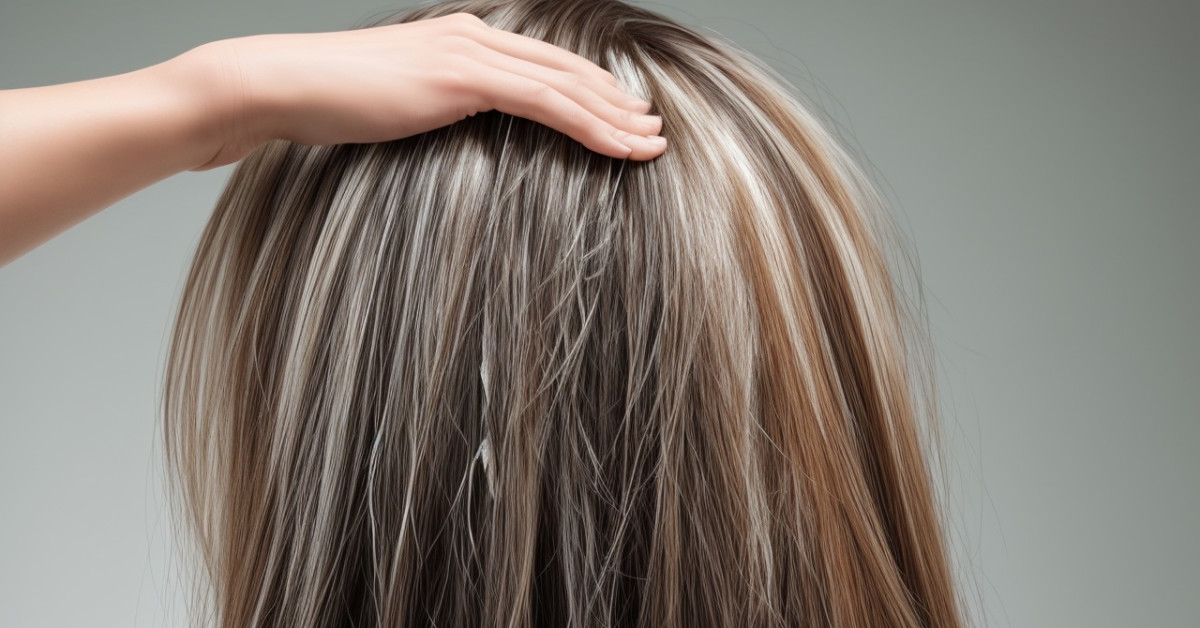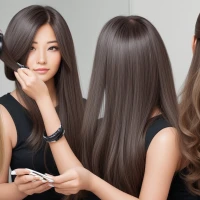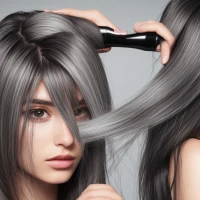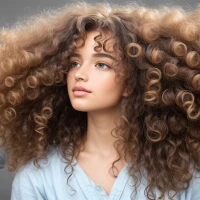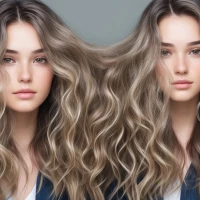Wave goodbye to wispy locks and discover the secret to voluminous, healthier-looking strands with our expertly curated list of the 20 Best Shampoos for Thinning Hair.
Regain the confidence that comes with a full, luscious mane as we unveil the champions of haircare that promise to transform your tresses and elevate your hair game.
Whether you’re battling with the early signs of hair loss or seeking to add density to your do, our selection caters to every need, ensuring you can stride with pride and turn heads with your revitalized crown of glory. Dive into our treasure trove of follicle-fortifying elixirs and find your hair’s true match today!
What to look for in shampoos for thinning hair
When looking for shampoos specifically formulated for thinning hair, there are several key ingredients and features to consider that can help address hair loss and improve the appearance of your hair. Here’s what to keep in mind:
-
DHT Blockers: Dihydrotestosterone (DHT) is a hormone that is linked to hair loss. Some shampoos contain ingredients like saw palmetto, nettle extract, or pumpkin seed oil that can block the action of DHT on hair follicles.
-
Keratin and Amino Acids: Keratin is a protein that’s a primary component of hair. Shampoos with keratin or amino acids help strengthen and rebuild hair fibers, making them a good choice for thinning hair.
-
Biotin: Also known as vitamin B7, biotin is one of the B-complex vitamins that help in the production of keratin. Biotin-infused shampoos can support healthy hair growth and improve the keratin infrastructure.
-
Niacin: Niacin, or vitamin B3, can help improve blood circulation to the scalp, encouraging hair growth and nourishing hair follicles.
-
Antioxidants: Look for shampoos with antioxidants like vitamins E and C, which can protect the hair and scalp from oxidative stress and free radical damage, which can exacerbate hair loss.
-
Natural Oils: Oils such as argan, rosemary, peppermint, and tea tree can stimulate the scalp and provide essential nutrients to hair follicles, promoting hair growth and improving hair health.
-
Mild Cleansing Agents: Since thinning hair can be more fragile, look for shampoos with mild surfactants that gently clean without stripping hair of its natural oils.
-
Scalp Stimulants: Ingredients like menthol or caffeine can stimulate the scalp, improving blood circulation and promoting healthier hair growth.
-
Sulfate-Free: Sulfates can strip hair of essential oils and cause irritation to sensitive skin. Shampoos that are sulfate-free are typically gentler and better for both thinning hair and sensitive scalps.
-
Conditioning Agents: Ingredients like panthenol, glycerin, and silicones can help to moisturize hair and add volume, making hair appear thicker and fuller.
-
Clinically Tested: Whenever possible, opt for products that have been clinically tested for their efficacy in helping with hair thinning and are recommended by trichologists or dermatologists.
-
pH Balanced: The pH level of your shampoo can affect the health of your scalp. Look for a shampoo that is pH balanced to reduce the risk of irritation and to maintain scalp health.
-
Avoid Harsh Chemicals: Try to avoid shampoos with harsh chemicals like parabens, phthalates, and artificial fragrances, which can cause scalp irritation and further damage hair.
Remember that while a shampoo can help create a healthy scalp environment, it’s only one aspect of addressing thinning hair. Other factors including diet, stress management, and hormonal balance also play critical roles. Consultation with a healthcare practitioner or a dermatologist can provide a more personalized approach to treating hair thinning.
What causes hair loss shampoos for thinning hair
Hair loss can be caused by a variety of factors, including genetics, hormonal changes, medical conditions, medications, nutritional deficiencies, and stress, to name just a few. In some cases, the ingredients in your hair care products, including shampoos, can also contribute to hair thinning or hair loss.
Some potential reasons shampoos might contribute to hair thinning or loss include:
- Harsh Ingredients: Certain chemicals in shampoos, such as sulfates, parabens, and phthalates, may irritate the scalp or weaken the hair shaft, leading to breakage.
- Allergic Reactions: Some individuals might be allergic to specific ingredients in shampoos, causing inflammation and weakening of the hair follicles.
- Over-Cleansing: Using shampoos that strip too much natural oil from the scalp can disrupt the natural balance, potentially leading to a dry, irritated scalp and weaker hair.
- Product Build-up: Shampoos that leave residue or build-up on the scalp can clog hair follicles and impede hair growth.
Shampoos formulated for thinning hair typically have ingredients that aim to counteract these issues and create an environment that supports scalp health and hair growth. Here are some features of shampoos that can benefit thinning hair:
- Gentle Cleansing: Look for shampoos that gently cleanse without stripping away essential oils, helping maintain a healthy scalp environment.
- DHT Blockers: Dihydrotestosterone (DHT) is a hormone linked to hair loss. Some shampoos contain ingredients like saw palmetto, pumpkin seed oil, or green tea extract that are believed to help block DHT.
- Nourishing Ingredients: Ingredients like biotin, keratin, and various vitamins and minerals can help strengthen hair and promote growth.
- Scalp Stimulants: Ingredients like peppermint or caffeine can stimulate the scalp, potentially promoting better blood flow and healthier hair follicles.
- Anti-Inflammatories: Ingredients like aloe vera or tea tree oil can soothe the scalp, reducing inflammation that might negatively affect hair follicles.
It’s important to note that while shampoos can play a role in supporting hair health, they are unlikely to reverse hair loss caused by genetic or hormonal factors. In such cases, you may need to seek other hair loss treatments such as minoxidil, finasteride, laser therapy, or even surgical options like hair transplants. Additionally, for any underlying medical condition or deficiency, consulting with a healthcare provider or a dermatologist is crucial for appropriate diagnosis and treatment.
Can hair grow back after thinning?
Hair thinning, also known as hair loss or alopecia, can result from various causes, including genetics, hormonal changes, medical conditions, stress, nutritional deficiencies, or harsh hair treatments. Whether or not hair can grow back after thinning depends largely on the underlying cause of the hair loss.
Here’s how hair growth might be influenced by different factors:
-
Genetics:
- Male-pattern baldness (androgenetic alopecia) and female-pattern hair loss are hereditary conditions.
- Hair may thin over time, and the follicles may stop producing hair altogether. Once a hair follicle is no longer active, it cannot produce new hair.
- In these cases, treatments like minoxidil (Rogaine) or finasteride (Propecia) may help slow down the loss or regrow hair but are not typically permanent cures.
-
Hormonal Changes:
- Hormonal changes due to pregnancy, childbirth, menopause, or thyroid problems can cause temporary hair thinning.
- Once the hormonal imbalance is addressed, the hair often starts to grow back.
-
Medical Conditions:
- Alopecia areata is an autoimmune condition that can cause sudden hair loss in patches. Hair may grow back on its own or treatments may be needed.
- Scalp infections and diseases that cause scarring, such as lichen planopilaris or frontal fibrosing alopecia, can cause permanent hair loss at the affected sites.
-
Stress:
- Telogen effluvium is a condition triggered by significant stress where hair prematurely enters the resting phase, leading to increased shedding and thinning.
- Once the stressor is managed or removed, hair growth generally resumes.
-
Nutritional Deficiencies:
- Lack of certain nutrients, such as iron, vitamins (particularly biotin, vitamin D), or proteins, can lead to hair thinning.
- By correcting these deficiencies through diet or supplements, hair can potentially regrow.
-
Harsh Hair Treatments:
- Overstyling, heat damage, or harsh chemical treatments can cause hair breakage and thinning.
- Avoiding these damaging practices and nurturing hair back to health through proper care and possibly trimming can encourage regrowth.
To promote hair regrowth after thinning, consider the following:
- Consult a healthcare provider or dermatologist to diagnose the cause of the hair thinning.
- Depending on the diagnosis, appropriate medication or treatments can be prescribed.
- A balanced diet that includes all necessary nutrients is crucial for hair health.
- Over-the-counter treatments such as minoxidil or laser therapy might be beneficial.
- In some cases, hair transplant surgery is an option for permanent hair loss.
Keep in mind that individual results can vary, and what works for one person might not work for another. It’s essential to address hair thinning with realistic expectations and under the guidance of a professional.
What can you do to prevent hair thinning?
To prevent hair thinning and promote overall hair health, you can adopt several strategies:
-
Balanced Diet: A nutritious diet rich in protein, vitamins, and minerals is vital for healthy hair growth. Include foods that are rich in iron, zinc, vitamin E, and omega-3 fatty acids.
-
Scalp Care: Keep your scalp clean and healthy by using gentle, sulfate-free shampoos. Massaging your scalp can increase blood flow, contributing to healthier hair growth.
-
Avoid Heat Styling Tools: Frequent use of blow dryers, flat irons, and curling irons can damage hair and contribute to hair thinning. Try to minimize their use, and always apply a heat protectant when you do.
-
Gentle Styling: Avoid tight hairstyles, such as braids, buns, or ponytails, which can pull on the roots and cause hair loss. Use soft hair ties and try to change your hairstyle often to reduce tension on the hair.
-
Manage Stress: High stress levels can lead to hair thinning or loss. Practice relaxation techniques such as meditation, yoga, and deep breathing.
-
Appropriate Hair Care Products: Choose hair care products suited for your hair type, and consider using those that are specifically designed to prevent hair thinning.
-
Avoid Harsh Chemical Treatments: Chemical treatments such as bleaching, dyeing, perms, or relaxers can weaken hair and lead to breakage and thinning. Try to reduce the frequency of these treatments or opt for more natural options.
-
Hair Supplements: Biotin, vitamin D, and other hair supplements may help to prevent hair thinning, but consult with your healthcare provider before starting any new supplement regimen.
-
Regular Exercise: Exercise can improve blood circulation, including to your scalp, which may promote hair growth.
-
Stay Hydrated: Ensure you drink enough water throughout the day to keep your hair and body hydrated.
-
Quit Smoking: Smoking reduces circulation throughout the body, including blood flow to the scalp, which can hinder hair growth and lead to thinning.
-
Limit Alcohol Consumption: Excessive alcohol intake can lead to hair thinning, as it can impact the levels of zinc in your body which is vital for healthy hair growth.
-
Seek Medical Advice: If you’re concerned about excessive hair thinning, it might be a symptom of a medical condition. Thyroid issues, hormone imbalances, and other health concerns can lead to hair loss. A healthcare provider can determine if there’s an underlying cause and recommend appropriate treatment.
-
Medications and Topical Treatments: In some cases, medications such as minoxidil (Rogaine) may be recommended to prevent hair thinning. Topical treatments with natural growth factors or anti-androgens can also be helpful in some scenarios. Always seek medical advice before starting any new medications.
It’s important to keep in mind that genetics also play a major role in hair growth and health. Some individuals may be more prone to hair thinning due to hereditary factors, and such situations may require tailored treatment plans from healthcare professionals.
How can you treat thinning hair?
Thinning hair can be a source of distress for many people, but there are various strategies and treatments that can help manage the condition and encourage hair growth. Here are some methods to treat thinning hair:
-
Consult a healthcare professional: Before trying any treatments, it’s wise to speak with a dermatologist or trichologist to diagnose the cause of hair thinning. Conditions like alopecia, thyroid problems, and hormonal imbalances may require medical intervention.
-
Minoxidil (Rogaine): This over-the-counter topical treatment is FDA-approved for both men and women. It’s applied to the scalp and can help stimulate hair growth.
-
Finasteride (Propecia): This prescription oral medication is approved for male-pattern baldness and works by blocking the production of a hormone that leads to hair loss. It is not typically prescribed for women.
-
Nutritional supplements: Deficiencies in certain nutrients like iron, vitamin D, zinc, and biotin can lead to hair thinning. Supplements might help, but it’s essential to consult a healthcare provider before beginning any new supplement regimen.
-
Hair care practices: Avoid tight hairstyles, harsh chemical treatments, and excessive heat styling, as these can contribute to hair breakage and loss. Use gentle hair care products and consider techniques that minimize damage.
-
Diet improvement: Eat a balanced diet rich in proteins, omega-3 fatty acids, and fresh fruits and vegetables to provide the necessary nutrients for healthy hair growth.
-
Scalp massage: Regular scalp massages can increase blood flow to the scalp and encourage hair growth.
-
Laser therapy: Low-level laser therapy devices for home use are available, and some studies suggest they might stimulate hair growth.
-
Hair transplant surgery: For significant hair loss, surgical options like hair transplants can redistribute hair from thicker areas of the scalp to thinning areas.
-
Platelet-rich plasma (PRP) therapy: This involves drawing a person’s blood, processing it to isolate platelets, and injecting it into the scalp to stimulate hair growth.
-
Topical corticosteroids: In cases of alopecia areata, a condition where the immune system attacks hair follicles, corticosteroids can help reduce inflammation and promote hair growth.
-
Stress management: Chronic stress can contribute to hair loss, so incorporating stress-reduction techniques like meditation, yoga, or mindfulness can be beneficial.
-
Hair styling and camouflaging products: While these don’t treat hair thinning, they can help cover up thinning areas and provide a confidence boost. Options include hair fibers, wigs, hairpieces, and scalp concealers.
It’s important to note that the effectiveness of these treatments can vary depending on the individual and the underlying cause of hair thinning. Also, some treatments may have side effects or contraindications, so professional guidance is paramount.
Conclusion
In conclusion, when addressing the issue of thinning hair, selecting the right shampoo can be a critical step in your hair care routine. Shampoos specifically formulated for thinning hair often contain ingredients that aim to clean the scalp, remove buildup, improve circulation, and nourish hair follicles.
Key ingredients to look for in shampoos for thinning hair include biotin, keratin, antioxidants, amino acids, vitamins (such as Vitamin B5 and E), and DHT blockers. These components can help strengthen existing hair, promote hair growth, and prevent further hair loss.
While results can vary based on individual conditions, it is important to choose a shampoo that suits your particular hair type and addresses any underlying issues that may be contributing to hair thinness. Always avoid harsh chemicals that can strip hair of its natural oils and lead to further damage.
Remember that managing thinning hair is a multifaceted approach that includes proper nutrition, scalp care, and sometimes medical intervention, depending on the cause. Consultation with a healthcare professional or a trichologist can provide personalized advice and treatment options.
Finally, patience and consistency are key. Improvements in hair density and strength will take time, and regular use of the right shampoo, combined with a comprehensive hair care routine, can ultimately yield better results for those dealing with thinning hair.
